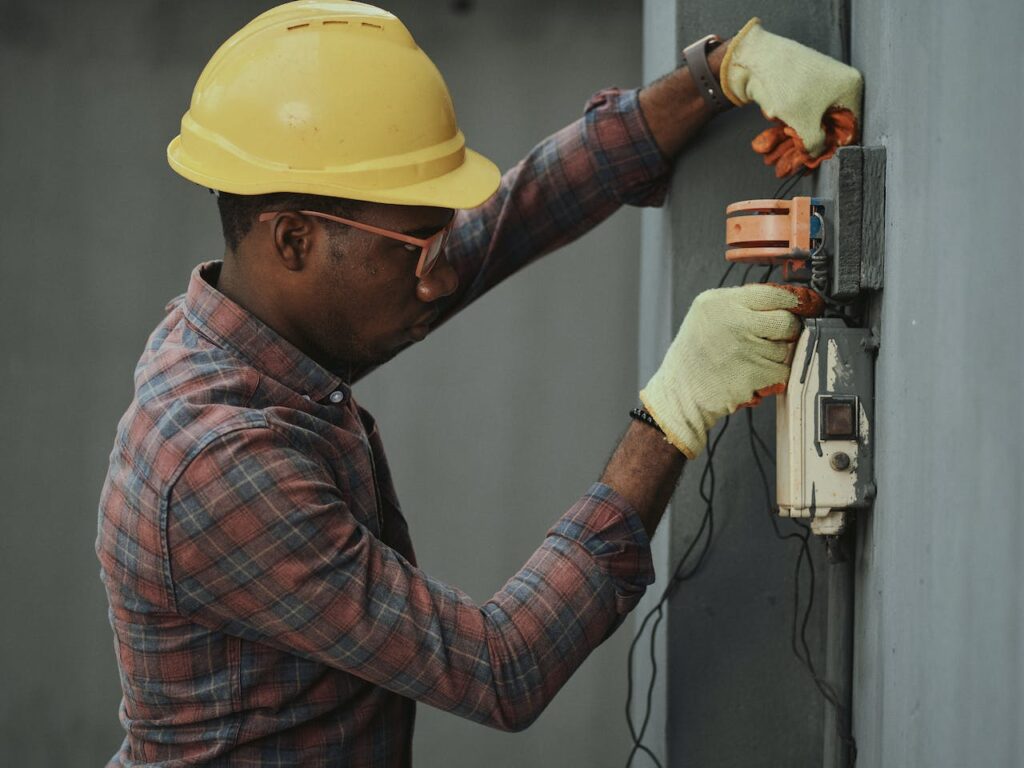The complex world of electrical systems necessitates accuracy, caution, and a deep comprehension of safety procedures. Regrettably, electrical errors are frequent and can have detrimental effects. You must be aware of potential hazards if you want to protect your property and the people who use it. This post explores the top ten typical electric errors and offers advice on how to steer clear of them in order to create an atmosphere that is safer and more effective.
- Circuit overloading
Circuit overloading is one of the most common errors. Overplugging a single outlet or circuit with many devices can cause overheating and create a fire hazard. Use power strips with integrated surge protection and space out electrical gadgets across several outlets and circuits to prevent this.
- Homemade Wiring Without Adequate Instruction
Without the required skills, attempting do-it-yourself electrical repair is a surefire way to fail. There is a serious risk of electrical shock, fires, and appliance damage from improper wiring. When doing any wiring or electrical installations, always get advice from a licensed electrician.
- Ignoring GFCIs, or ground fault circuit interrupters
In wet environments like bathrooms and kitchens, GFCIs are meant to prevent electrical shocks. Electrical accidents are more likely when GFCIs are not installed or tested on a regular basis. Make sure GFCIs are installed where necessary, and test them frequently to ensure they continue to work as intended.
- Abuse of Extension Cords
It’s a typical error to use extension cables as permanent fixes. They can overheat if misused or overused because they are only meant to be used temporarily. If you require more outlets, you should think about hiring an electrician to install them securely.
- Ignoring lights that flicker
Lights that flicker could be a sign of deeper electrical problems like faulty wiring or overloaded circuits. Ignoring these warning indicators may result in more serious issues. See an electrician to identify and solve any persistent flickering lights as soon as possible.
- Inaccurate Wattage of Light Bulb
When light bulbs are used in fixtures that are rated for wattages lower than their own, overheating and possible fire dangers may result. When choosing a light bulb, make sure its wattage corresponds with the requirements of the fixture. If at all feasible, use energy-efficient LED lights.
- Inadequate Electrical Inspections
Regular electrical checks should not be neglected as this may lead to hidden problems that eventually become more serious. Regular inspections by a licensed electrician can spot possible issues before they worsen and guarantee the security and efficiency of your electrical system.
- Ignoring Antiquated Wiring
It’s possible that outdated wiring, such aluminum or knob-and-tube wiring, doesn’t adhere to modern safety regulations. The risk of electrical fires and other dangers rises when old wiring is neglected. Speak with a qualified electrician to evaluate and, if needed, upgrade your wiring.
- Inadequate Outlet and Switch Planning
Inadequate outlet and switch planning might result in awkward and sometimes dangerous circumstances. Make sure switches are conveniently accessible without being crowded, and outlets are arranged to best suit the needs of the available space.
- Disregarding Electrical Improvements
Electrical systems are becoming more and more necessary as technology develops. Electrical upgrades are necessary, but if they are neglected, the power supply may become insufficient and circuit overloads may occur frequently. Take the initiative to update your electrical system so that it can accommodate the needs of contemporary appliances and gadgets.
In summary
Electrical systems are complicated, so navigating them demands attention to detail and a dedication to safety. You may establish a safe and effective electrical environment in your house or place of business by avoiding these typical electrical errors and seeking the advice of trained experts when necessary. Recall that everyone has a responsibility for electrical safety, and the first step to a safer electrical future is knowledge.
You can also find us through our supportive affiliate partners:
Meta Marketing | Daneshmand Magazine | Salam Vancouver Magazine | Salam LA | Salam 118 | Concord Media | Ajdari | Doctor Home Inspections | Concord Home Inspections | Concord Solar |

